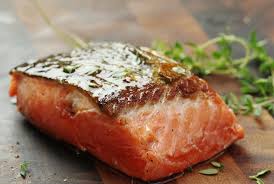If you want to build muscle, it’s not just the total daily protein intake that matters, but how it’s distributed throughout the day.
If you’re trying to build muscle and are wondering if the instruction to eat protein at every single meal is just a bunch of hype, think again.
The directive to have 25 to 35 grams of protein with each meal may seem like a ploy by protein supplement companies to get you to buy their big cans of protein powders and use them up quickly so you can keep on buying more.
And it may very well be a marketing ruse. However, there IS some truth to the importance of protein at meals for those who want to build muscle.
There’s research that shows that the way that protein intake is spread throughout the day really DOES make a difference in muscle maintenance and building.
A May 2016 issue of Journal of Nutrition explains that the potential for building muscle is less than optimal when your protein intake is overloaded at night and skimpy in the morning and afternoon.
Doug Paddon-Jones, a muscle metabolism expert from the University of Texas Medical Branch, conducted a study.
Muscle protein synthesis was measured for this study, which involved participants who ate protein evenly throughout the day at each meal, and others who went light on the protein for breakfast and lunch, then heavy on it at dinnertime.
The subjects who took in the evenly distributed protein meals had a 25 percent greater muscle protein synthesis rate than did the participants who ate the same amount of this macronutrient but with a distribution of light for breakfast and lunch, and then an overload at dinner.
Struggling to Build Muscle? Revisit Your Protein Consumption

Freepik.com, timolina
Maybe the only variable left to fix is when you eat protein and how much, if your gym progress is taking its sweet ol’ time.
“When you spread your protein intake throughout the day, your body is getting a constant supply of the amino acids it needs to boost metabolism and build muscles, and help keep you full/satisfied,” says Sara Artigues, a registered dietician and certified personal trainer out of New Orleans.
“Protein isn’t necessary at every single meal, but try to get it in at two out of three if you eat three meals/day.”
And be balanced about it. Don’t have one of the protein meals just 10 grams of protein, and then the other meal has 50 grams.
Artigues adds, “Snacks including protein sources are great too. Protein isn’t just for building muscles.
“Protein repairs tissue and is an important building block for your blood, skin, cartilage and hormones.
“Focus on including protein like lean meats (chicken, turkey), fish and eggs to get the maximum benefits during your meals. Vegetarian/vegan sources of protein are also beneficial.”
Sources of Protein
Science vs. nature? ARE those “scientifically formulated” protein powders better than what nature provides us (e.g., wild game, wild-caught fish, grass-fed beef)?
Nothing beats protein in its most natural form.
However, for some people it’s just plain tedious to limit protein intake to whole foods, especially if they’re eating six meals a day.
Protein powders then become a good source of convenience.
Powders with the fewest ingredients (such as no artificial colors or sweeteners) are better.




























